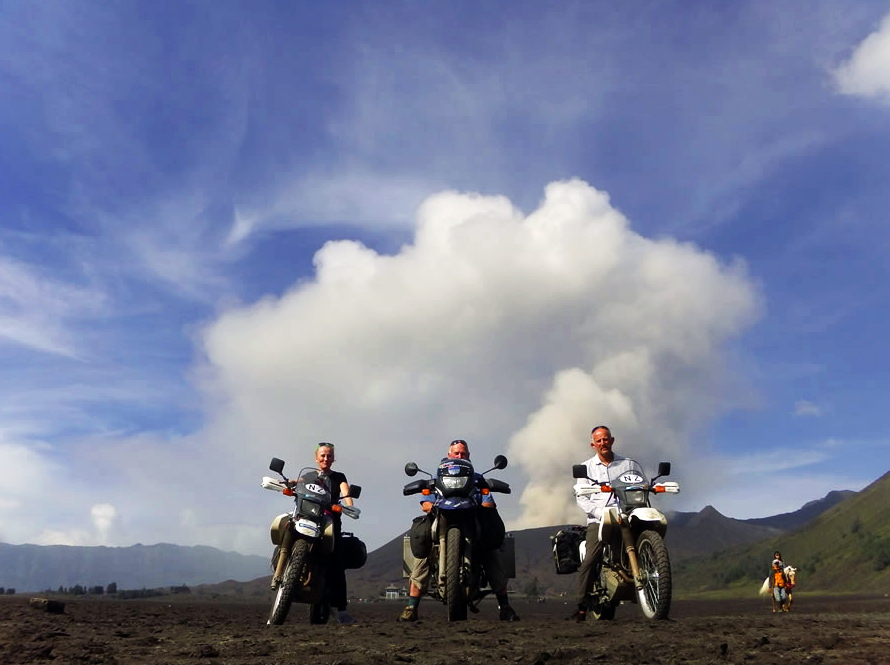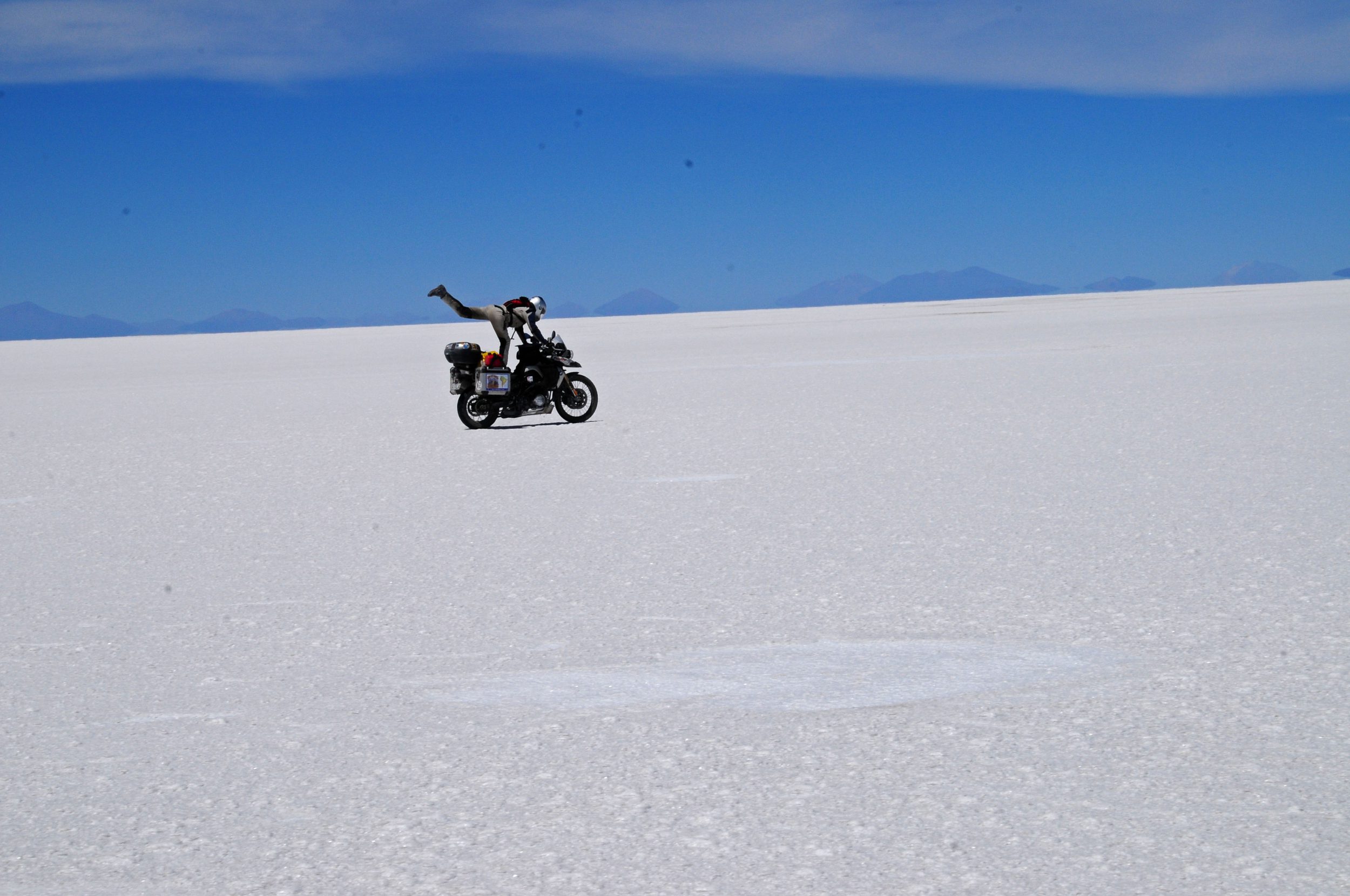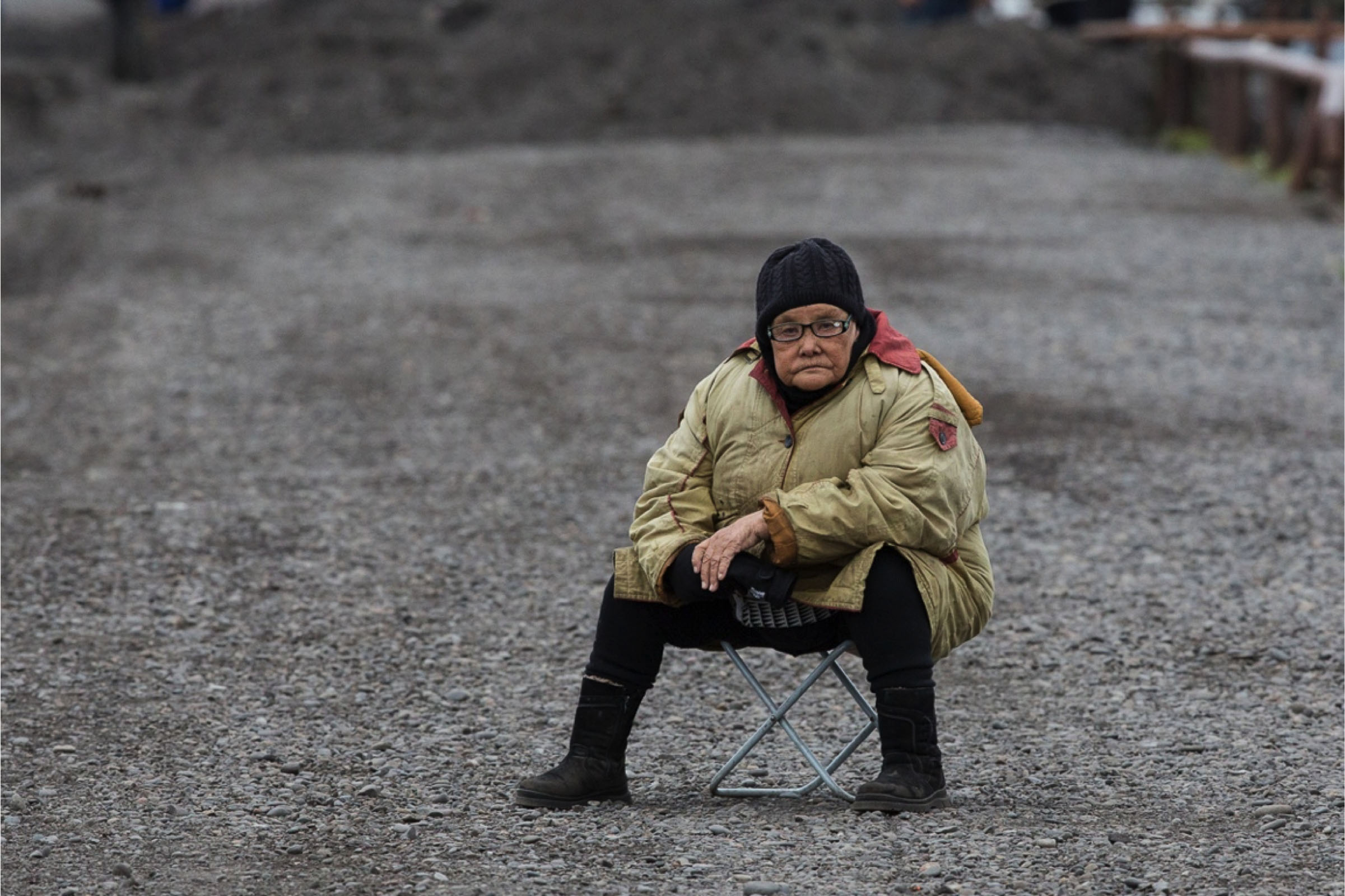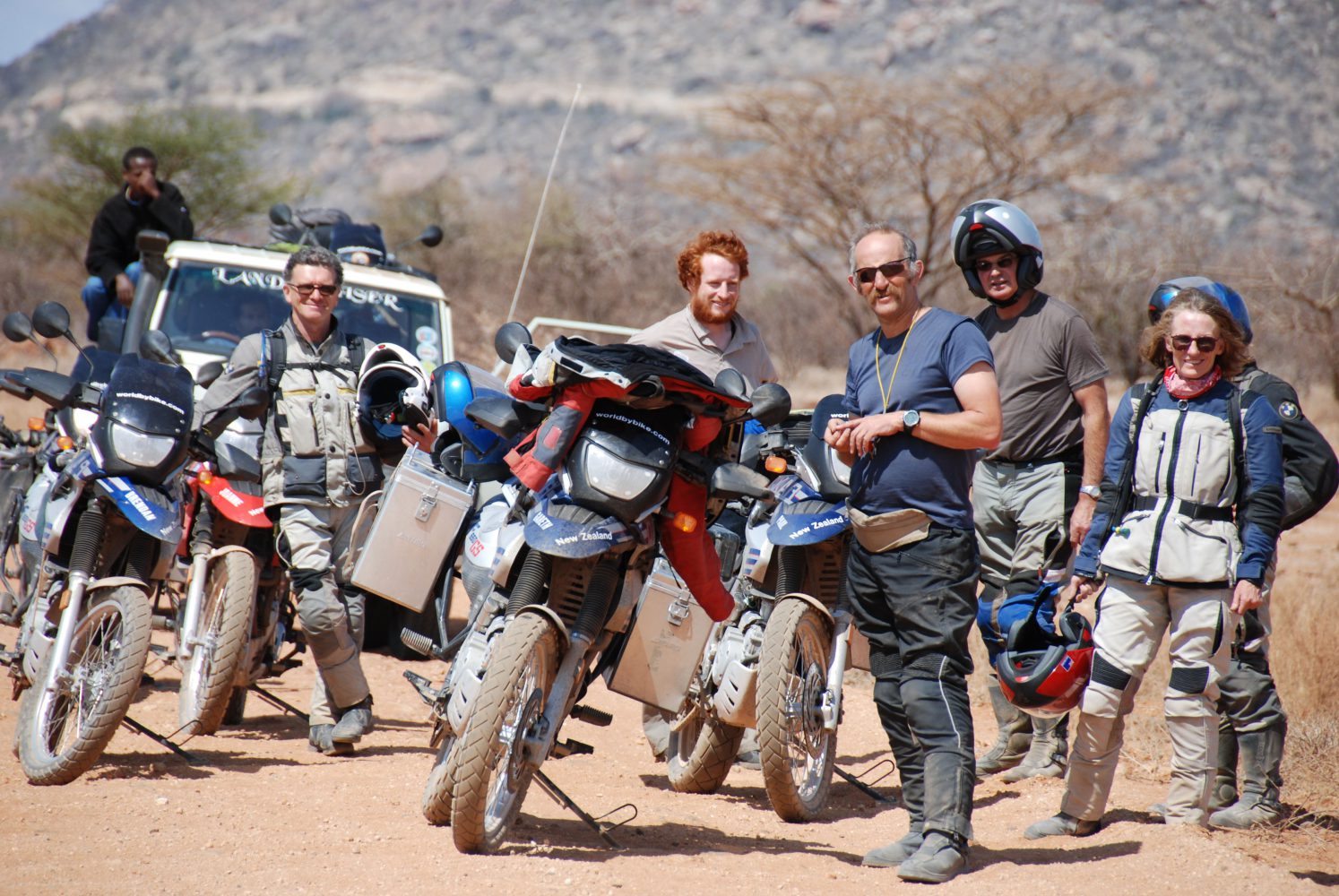Gareth Morgan: Keep Doing It till You Can’t
He has witnessed the world through the lens of an economist, a businessman, an investment manager, a philanthropist and a leather-clad motorcycle adventurer. Now what?
You have just returned from another motorcycle adventure overseas…
We rode the length of Indonesia from the top of Sumatra, ending up in Dili, East Timor. It’s part of our ambition to ride all of the world, something we began 16 years ago and is on-going. Over the last couple of years we’ve been working our way through most of Asia and so it was Indonesia’s turn. This is the world’s largest country by population and to ride it during Ramadan promised to make it an unforgettable experience.
Tell us what makes each journey special for you?
Each country is unique, that is something we have come to fully appreciate as we accumulate the experiences of visiting so many societies over the years. So we’ve tended to work through as much of an area, one region at a time over the years. Of late it has been Asia — from Pakistan in the west to Indonesia in the east, from Siberia in the north down to Timor-Leste in the south. That is driven primarily by the need to minimise how much shipping of the motorcycles we have to do. We ship them to one end of the intended journey and then work on doing as much of the region as possible before we ship them out.

How does it change your perspective on your native New Zealand each time you return home?
There’s nothing like a perspective from beyond to make you appreciate how limited your view of home is from the inside. With the benefit of experiencing other societies, you are able to ‘benchmark’ your own society against the plusses and minuses of others. It’s a major benefit for acquiring a more balanced view.
Your travels through different parts of the world are captured in a series of books — from Kimchi Kiwis (North Korea) to Under African Skies (from Cape Town to London) and Gringos Across The Amazon. Throughout New Zealand, your motorcycle journeys have become legend for people interested in travel. Why do you think they resonate so strongly with a large number of your fellow countrymen and women?
Undoubtedly because it’s the dream of many Kiwis to travel the world — we are a distant and isolated country so are all born with wanderlust. We’ve been in some remote corners of the globe and it’s uncanny how often we come across Kiwis doing their thing — backpacking, riding horses, riding motorcycles, driving four-wheel-drives — all fulfilling their dreams of travel. It’s amazing how many times we’ve been told that our tales have inspired others to up sticks and get out there and ’do it’.

In the 1980s you went from being a high flyer in the New Zealand Reserve Bank to becoming the bête noir of the country’s financial services sector, to helping your son Sam set up the super-successful Trade Me site, to managing New Zealand’s only professional football team. Over recent years, you have also received much acclaim for your exploits as a leather-clad globetrotter and also set up the Morgan Foundation — a philanthropic organisation dedicated to addressing public and social policy, and tackling numerous environmental issues. Which of these diverse interests do you cherish most from a strictly personal point of view?
Morgan Foundation is a lot of fun — to be able to choose charitable endeavours that enable you to work in areas you feel most committed to and interested in, is a real privilege and a very satisfactory reward from the various business successes we’ve been able to enjoy. To be doing stuff because you want to do it and not because you have to or need to, gives you a whole different outlook on life. It makes all those years we worked so hard seem so rewarding now.
New Zealand’s clean green image has come under attack over recent years. For instance, most of New Zealand’s native lowland forests are long gone and the tussock grasslands of the central South Island are in rapid retreat. How does a country still imbued with the land development ethos of its forebears go through the sort of philosophical epiphany needed to become truly clean and green?
There are some cool things happening, there’s a greater awareness nowadays that our ‘natural capital’ is one of our greatest assets; that we have to protect and enhance it. Farming businesses are becoming more and more environmentally conscious. The government has realised that objectives like ’wadeable‘ rivers are just not acceptable; that we have to move to ’swimmable‘ rivers because that’s what the people want.
Look at Predator-Free 2050. Who would have thought a government would grab such an ambitious aspiration and run with it? For sure, all around the world there is a growing realisation that the environmental bounty is not infinite, that despoiling it does lead to horrible living conditions. From the people of China objecting to their air quality to the growing realisation of the potential horrors of climate change, there is a greater and greater commitment to not leaving the planet worse off than we inherited it. Of course it’s difficult, but I have confidence that continued pressure from the public will lead to the appropriate responses from government and business.

Can New Zealand sustain tourism without a paradigm shift in its approach to environmental management?
The global value of New Zealand’s relative clean environment is rising exponentially. People want to come here — to visit and experience it and to live in it permanently. That is a huge bounty for us to capitalise on. The trick of course is how do we do capitalise on this and not ruin it. With tourism we need more user pays — I’d like to see environmental charges levied at the border so we can finance the infrastructure that protects our environment; with migration I’d like to see us concentrating more on restricting the inflow to highly qualified and skilled people who will create wealth. As Sir Paul Callaghan said, “we need to make New Zealand a place where talent wants to live”. Investment in our natural capital to ensure it’s protected and enhanced is the way to ensure that.
How does a nation with high levels of immigration and firmly wedded to the concept of economic growth address climate change and the caps recently agreed at Paris?
I think one of the great misnomers is that economic growth and environmental protection and enhancement are necessarily opposites. We don’t have to have ’dumb and dirty‘ growth, there is an abundance of opportunities to secure ’clean and clever‘ growth. By ensuring our immigration flows add to our talent pool, by ensuring tourism and farming fund repair of any environmental damage they might inflict, and by encouraging the uptake of technologies that reduce our carbon footprint we will increase the compatibility of higher incomes and an enhanced environment. I would argue that New Zealand has been lax in adopting credible strategies around reducing our carbon print. I’d very much like to see the government step up efforts in that area and I think both business and households are ready to apply sufficient pressure to ensure it does.

Returning to your various motorcycle journeys: have you found that your involvement with environmental and social issues has changed the way you look at the parts of the world you are travelling through?
Most of where we travel is the developing world, where on the one hand the lack of industrialisation has spared them of some of the worst environmental damage but on the other hand, high population density and lack of public amenities to dispose of garbage has rendered their living environment quite toxic.
It is quite interesting to see some of these economies skip whole phases of the industrialisation that we have experienced, thanks to the onset of new technologies. I don’t think our interest in these societies will wane over coming years, however, as they tend to change so rapidly as they benefit from the effects of globalisation, they’ll remain for us a source of fascination. For instance, when we first started going to South Korea, it was on New Zealand’s foreign aid list. Go there now and you realise they could easily be sending help to us. Those types of rapid transformations are exciting and a stark contrast to the economic evolution that we’re experiencing here at home.
Where to for Gareth Morgan in 2017?
Over recent years we have spent between only 2–5 months a year in New Zealand. I don’t see that changing much over coming years — we have to, as they say, seize every opportunity as if it’s our last — given that there will come a time we can’t do the stuff we’ve been enjoying now. So we’re working on a motorcycle ride from Casablanca to Tokyo at the moment, taking in places en route that we haven’t managed to get to so far. So there’s still plenty to experience, plenty to learn of other societies and heaps of people to meet along the way. Keep doing it till you can’t, is our credo.

